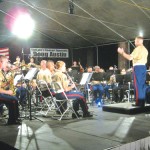Gov. Jerry Brown and the state legislature were busy during 2014 with both the Senate and Assembly passing more than 1,000 bills. That represents more than two bills per day. In reality, it’s closer to five or six since the legislature is not in session 365 days.
Gov. Brown signed 930 bills and vetoed 143 bills.
One of the more significant laws, which took effect on Jan. 1, was actually enacted in 2013. Assembly Bill 60 permits unauthorized immigrants to the state to obtain a California driver’s license if they can prove identity, California residence and meet all other licensing requirements, such as passing the drivers license knowledge and behind-the-wheel driving exams.
According to the California Department of Motor Vehicles, nearly 17,200 individuals applied for a state driver’s license on Friday, Jan. 2.
The plastic bag ban, which was to go into effect on July 1, may be delayed until 2016 or later. Opponents of the ban filed petitions to place the referendum issue on the 2016 ballot for voters’ approval. The Secretary of State has not confirmed if a sufficient number of signatures were obtained to qualify the referendum.
One law, which is effective July 1, is AB 1522. All state businesses are required to pay full-time and part-time employees a minimum of three days of sick leave annually.
Environmental laws were popular in recent legislative action, particularly as a result of the current drought. AB 2014 now prevents homeowner associations from penalizing residents for replacing their lawns with low-water plants.
Several bills, SB 1168, SB 1319 and AB 1739, will impose greater regulations on using groundwater, particularly in the largest and most urban water districts.
AB 32, enacted in 2006, established the state’s Cap and Trade program. Effective Jan. 1, fuel taxes, including gasoline and propane, were raised to address clean air problems in California (see accompanying story page 1.)
Local residents should be aware of AB 2048, which affects the state fire prevention fee. The new law specifies the state’s fire prevention fee will be applied to “habitable structures” effective Jan. 1. The current law simply says the fee applies to structures.
The new language makes it clear that habitable structures are for residential use and exclude “commercial, industrial, or incidental buildings such as detached garages, barns, outdoor sanitation facilities, and sheds.”
The changes also exempt the fee if the State Board of Equalization may exempt any habitable structure that is subsequently deemed uninhabitable as a result of a natural disaster during the year for which the fee is due, as well as one subsequent year if the habitable structure has not been repaired or rebuilt.
Another new law, which will please many locals, is AB 1965, which now permits restaurants to allow dogs to dine with their owners on restaurant patios, under certain conditions, such as a separate outdoor entrance for dogs.
One of many bills affecting public education was AB 420, which eliminated the authority to suspend a pupil in grades K-3, and the authority to recommend for expulsion a pupil enrolled in grades K-12, inclusive, for disrupting school activities or otherwise willfully defying.
Schools are now required to stock at least one epinephrine auto-injector in case a student or someone else is suffering from an anaphylactic reaction.
Fifteen California community colleges may begin to offer four-year degrees pursuant to SB 850.
Election laws were also subject to change. SB 1253 modifies the state’s initiative process, including a longer window for signatures and public review.
And finally, in today’s digital world, SB 962 requires smart phones to have the capability of making them inoperable if they are lost or stolen. This feature can be software, hardware or both.










